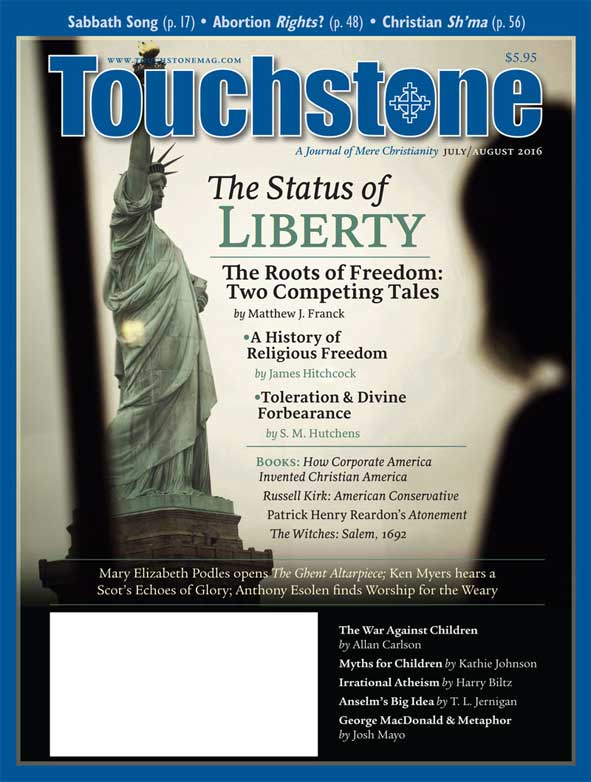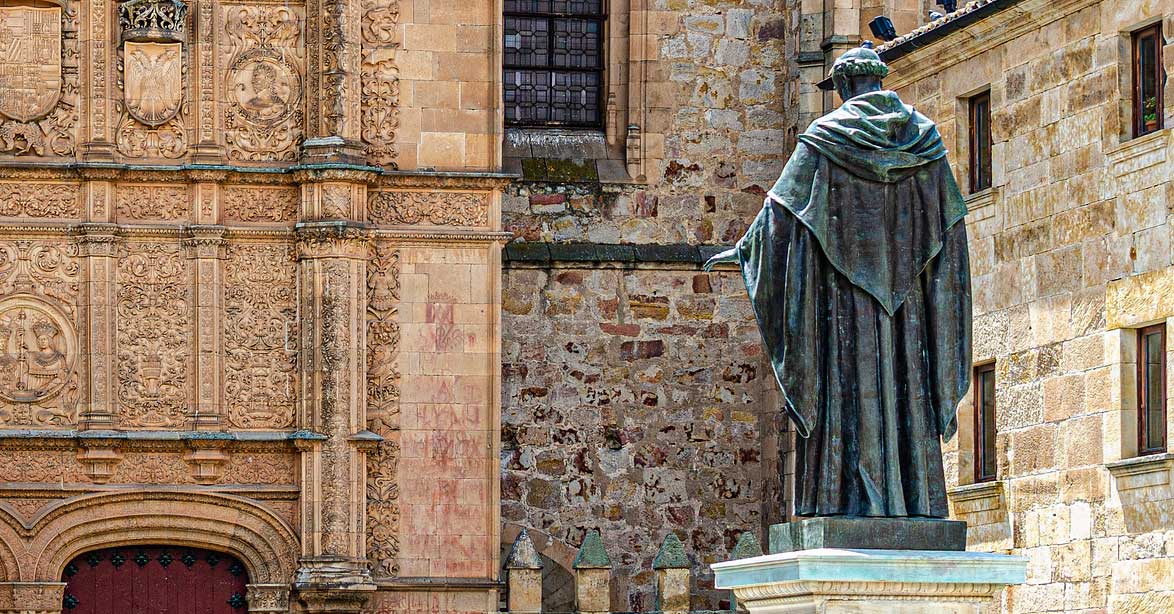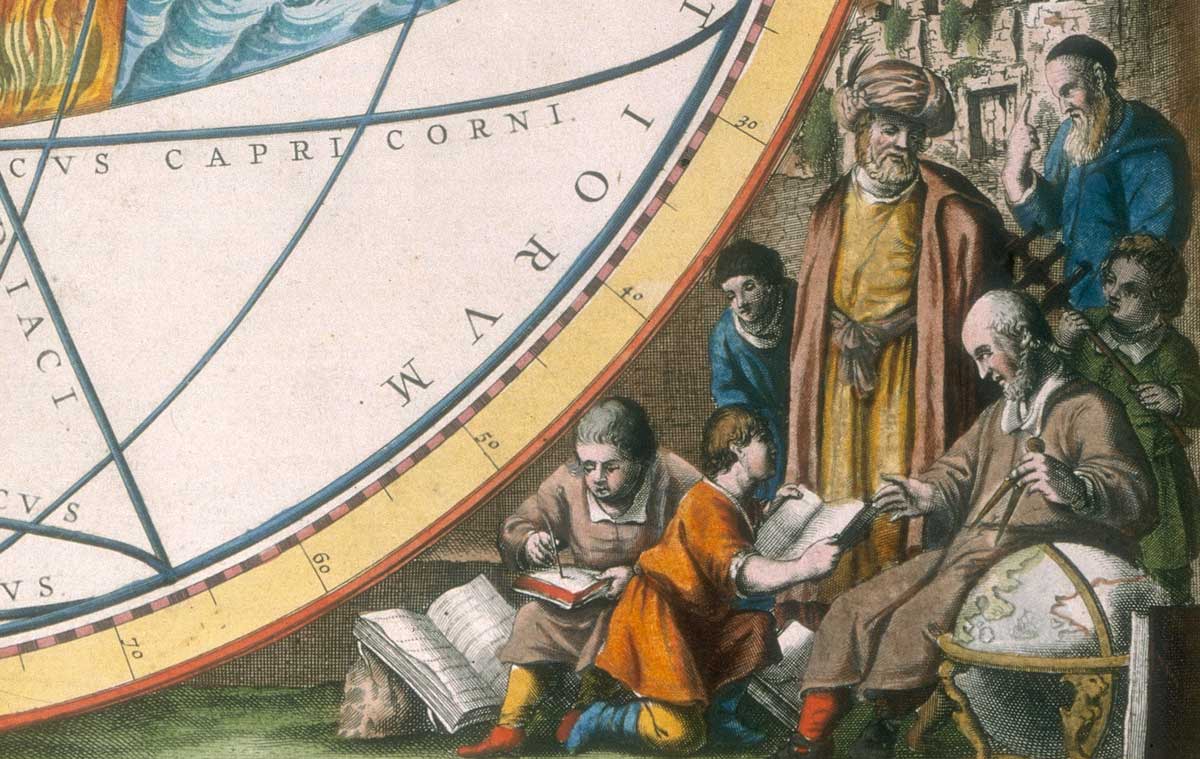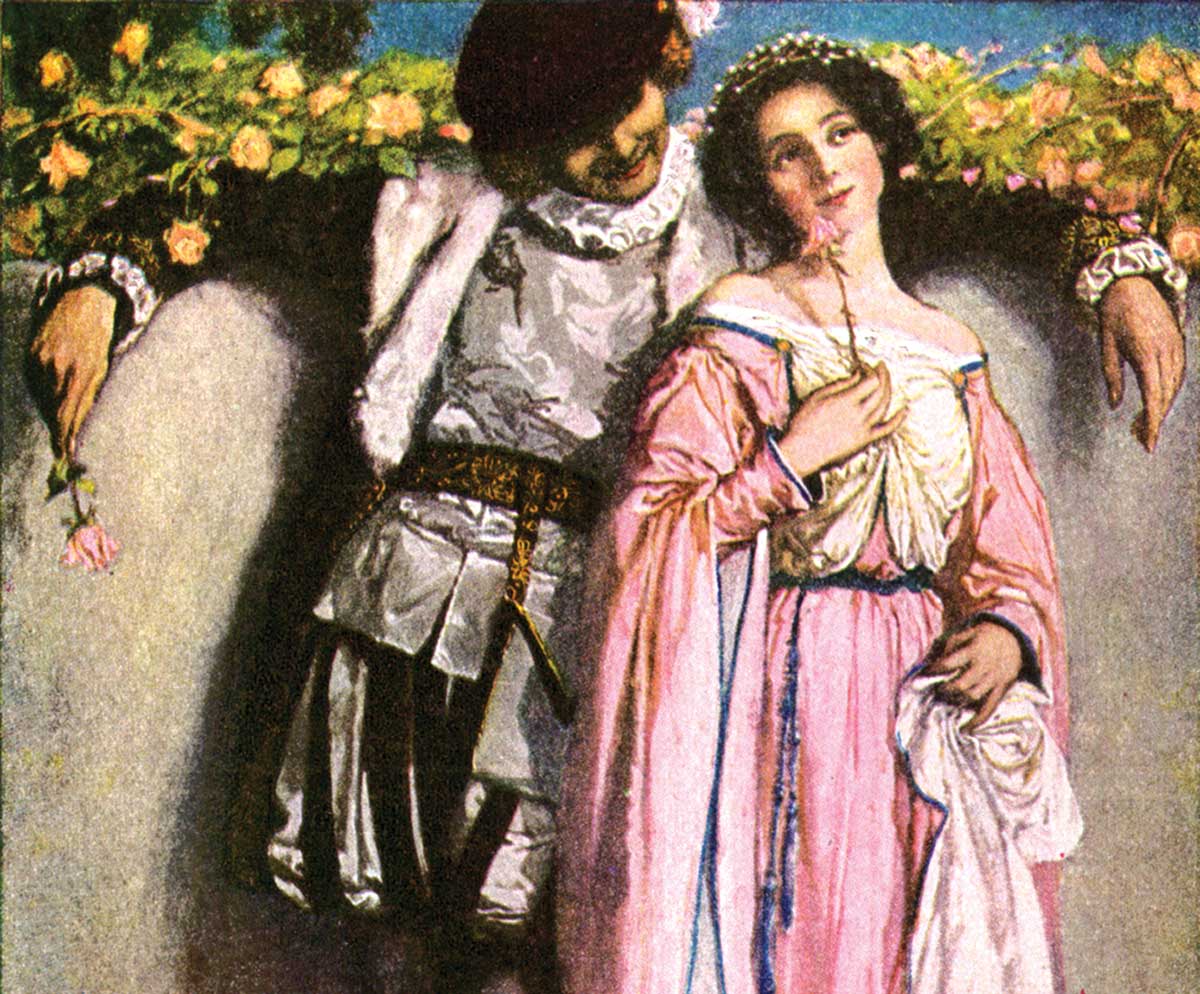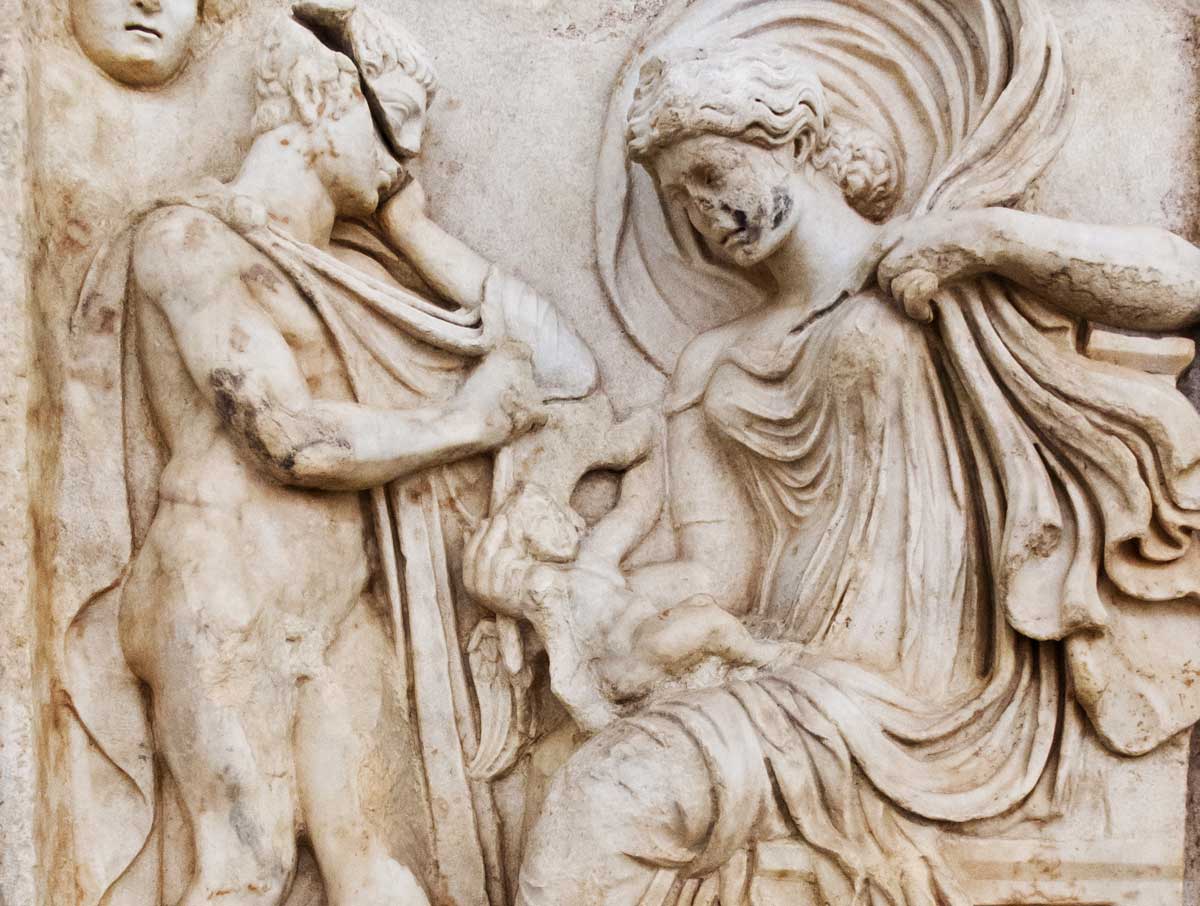View
The Very Idea
T. L. Jernigan on Anselm's God & the Virtue of Existing
"The more you love being, the more you will yearn for eternal life."—St. Augustine
One of the more notable works of the eleventh-century Archbishop of Canterbury, St. Anselm, is his attempt at a systematic and logical proof for the existence of God. While others have made such attempts before and after Anselm's work, his is unique, particularly in that—as a man ahead of his time—he tackled the Enlightenment-era desire to discern things "by silent reasoning in his own mind, inquir[ing] into things about which he is ignorant," while mired in the cultural and intellectual context of the high Middle Ages. In doing so, he attempted to move from the knowable to the unknowable, from the interior mind or worldly viewpoint to that of the divine.
Anselm goes on to note that he sought a single, irrefutable argument to prove that God really exists, is the height of goodness, and, while needing nothing, is needed by all. His logic has been studied by hapless college students, eager seminarians, and serious scholars for close to a thousand years; yet, in this modern era, students often find his argument unsettling, for reasons they cannot quite identify.
Anselm versus Nietzsche
Anselm's argument might be summed up (at least in its early premises) as this: God is the greatest good that can be imagined, and that which exists in reality is by its nature greater than that which exists only in the mind; thus, God must exist in reality. He praises God by saying,
[W]e believe that you are the thing than which nothing greater can be thought. . . . it is the one thing to have something in the understanding, but quite another to understand that it actually exists. . . . And certainly that than which nothing greater can be thought cannot exist only in the understanding. For if it exists only in the understanding, it is possible to think of it existing in reality, and that is greater. (from The Prayers and Meditations of Saint Anselm, Benedicta Ward, trans. [Penguin, 1973], 244–245)
Of course, this small, underlying assumption of Anselm's argument is, in its essence, the foundation for his entire ontological proof: that existence in reality is, in fact, a virtue, a greatness. Quite on the other hand, Nietzsche considered existence to be a horror inflicted upon us, and much of modernity, particularly with regard to our consideration of the unborn, seems to agree. In "Nietzsche, Virtue, and the Horror of Existence" (British Journal for the History of Philosophy, Feb. 9, 2009), Philip Kain quotes Nietzsche thus:
Oh wretched, ephemeral race, children of chance and misery, why do you compel me to tell you what it would be most expedient for you not to hear? What is best of all is utterly beyond your reach: not to be born, not to be, to be nothing.
Obviously, if one were to accept Nietzsche's bias, a virtuous deity himself could not exist, for non-existence is Nietzsche's virtue.
God's Declaration Echoed by the Church
Tara L. Jernigan is a vocational deacon in the Anglican Church in North America (ACNA) and the director of deacon formation for the Anglican Diocese of Pittsburgh. She serves on the task force for Marriage, Family and the Single Life for the ACNA and as an adjunct instructor for Trinity School for Ministry. Tara and her husband have two sons at home and one in college.
subscription options
Order
Print/Online Subscription

Get six issues (one year) of Touchstone PLUS full online access including pdf downloads for only $39.95. That's only $3.34 per month!
Order
Online Only
Subscription

Get a one-year full-access subscription to the Touchstone online archives for only $19.95. That's only $1.66 per month!
bulk subscriptions
Order Touchstone subscriptions in bulk and save $10 per sub! Each subscription includes 6 issues of Touchstone plus full online access to touchstonemag.com—including archives, videos, and pdf downloads of recent issues for only $29.95 each! Great for churches or study groups.
Transactions will be processed on a secure server.
more on philosophy from the online archives
more from the online archives
calling all readers
Please Donate
"There are magazines worth reading but few worth saving . . . Touchstone is just such a magazine."
—Alice von Hildebrand
"Here we do not concede one square millimeter of territory to falsehood, folly, contemporary sentimentality, or fashion. We speak the truth, and let God be our judge. . . . Touchstone is the one committedly Christian conservative journal."
—Anthony Esolen, Touchstone senior editor






